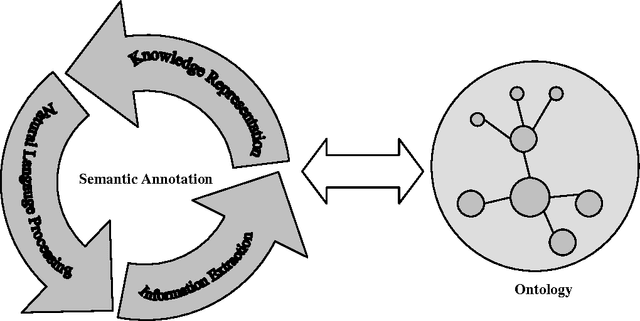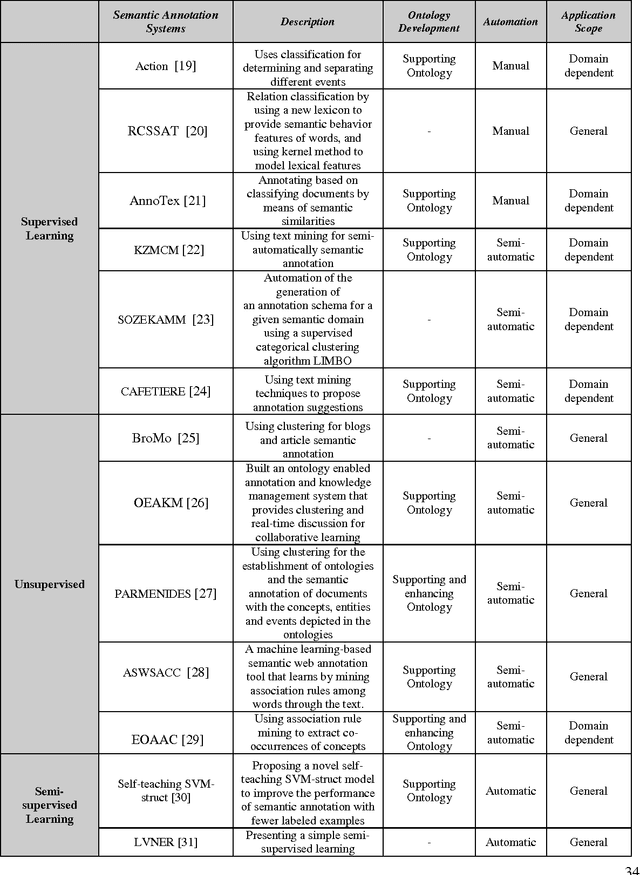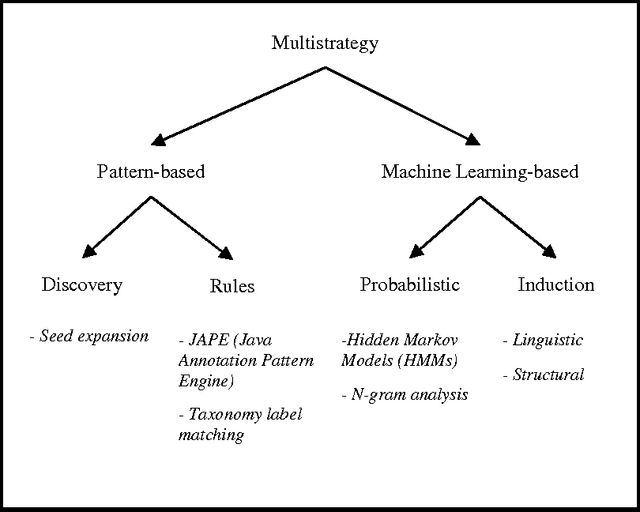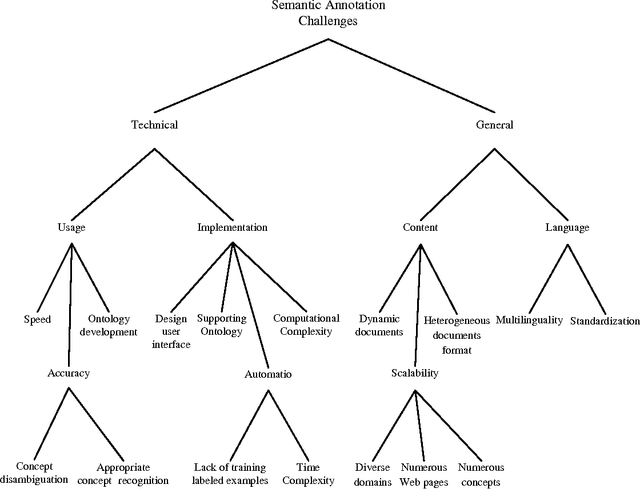A Machine Learning Based Analytical Framework for Semantic Annotation Requirements
Paper and Code
Apr 26, 2011



The Semantic Web is an extension of the current web in which information is given well-defined meaning. The perspective of Semantic Web is to promote the quality and intelligence of the current web by changing its contents into machine understandable form. Therefore, semantic level information is one of the cornerstones of the Semantic Web. The process of adding semantic metadata to web resources is called Semantic Annotation. There are many obstacles against the Semantic Annotation, such as multilinguality, scalability, and issues which are related to diversity and inconsistency in content of different web pages. Due to the wide range of domains and the dynamic environments that the Semantic Annotation systems must be performed on, the problem of automating annotation process is one of the significant challenges in this domain. To overcome this problem, different machine learning approaches such as supervised learning, unsupervised learning and more recent ones like, semi-supervised learning and active learning have been utilized. In this paper we present an inclusive layered classification of Semantic Annotation challenges and discuss the most important issues in this field. Also, we review and analyze machine learning applications for solving semantic annotation problems. For this goal, the article tries to closely study and categorize related researches for better understanding and to reach a framework that can map machine learning techniques into the Semantic Annotation challenges and requirements.
 Add to Chrome
Add to Chrome Add to Firefox
Add to Firefox Add to Edge
Add to Edge